But then there is the ’98 Paris Debacle, and the Meltdown in Seoul in 2002, and both present huge hurdles for us
ON the long flight from Abidjan to Johannesburg in December ’98, we were joined by a group of Confederation of African Football officials, who were coming with us all the way to our final destination in Harare.
Earlier that afternoon, the CAF officials had been witnesses to the Champions League final where ASEC Mimosas, thanks to a big helping hand from grand gamesmanship, which included a savage attack on the opposition team’s skipper, had been crowned champions of Africa.
Now, away from the mayhem of the Stade Houphouet-Boigny, cruising at 32 000 feet on a south-bound trip back home, the magnitude of Dynamos’ doomed mission, to turn themselves into the kings of football on the continent, was beginning to sink among their deflated players and coaching staff.
A good number of them were asleep, their energy drained by a fierce battle they had lost, amid controversy, but it was clear that the nightmare of their failed mission was dominating most of the ugly and disturbing visions that were appearing to these boys in their troubled sleep.
As the drinks began to take their toll, on those who had remained awake, one of the CAF officials, who had taken one tot too many of his favourite Scotch Whisky, all of it on rocks, dropped a hint of their mission to Zimbabwe.
And it was one that shook us
The inquest into the rebellion staged by Southern and Eastern African Football Associations, against the CAF leaders’ Ouagadougou declaration to deliver all 52 African votes into the corner of UEFA president Lennart Johansson, in his battle for the Fifa presidency with Sepp Blatter, in Paris on June 8, ’98, was in full swing.
And it was payback time
Zimbabwe, he said, had to pay for the sins of Zifa leaders, who were deemed to have been part of the rebellion, and had voted for Blatter instead of Hayatou’s choice.
Two months after their visit to Harare, under the pretext that they here to view the progress on facilities earmarked for the 2000 Nations Cup, CAF announced, after a meeting in Abidjan where those officials had boarded our plane, that the tournament would be moved from Zimbabwe because preparations had strayed behind schedule.
Years later, Paul Darby captured the drama, in his classic book, “Africa, The Fifa Presidency And The Governance Of World Football: 1974, 1978 and 2002”, which gives a detailed account of the fallout after Paris ‘98.
“The response of CAF’s leadership toward those who had failed to follow the Ouagadougou resolution was less amicable. Indeed, during an interview on a radio station, Hayatou was reported to have said he intended to remove from positions of power all those who had chosen not to follow the CAF executive’s stance on the election,” Darby wrote.
“In September 1998, the re-organisation of the Confederation’s committees, which left the pro-Blatter football associations with meager representation, can be interpreted as evidence that Hayatou was prepared to act upon his threat.
“The decision to suspend the Anglophone Confederation of East and Central Africa (CECAFA) and its general secretary, the Kenyan Sammy Obingo, from all football activities AND THE RESCINDING OF ZIMBABWE’S HOSTING RIGHTS FOR THE 2000 AFRICAN CUP OF NATIONS CAN BE VIEWED AS A SIMILAR ATTACK ON THOSE WHO HAD DECIDED THAT THE CONTINUED DEVELOPMENT OF AFRICAN FOOTBALL WOULD BE BETTER SERVED WITH BLATTER AS PRESIDENT.”
Four years after the Paris debacle, Hayatou offered his candidature, for the Fifa presidency, banking on the support of the Europeans, thanks to Johansson’s commitment to back him, 45 nations in Africa, including a Southern and East African bloc that now knew the cost of going against the Cameroonian strongman, and believing that the collapse of Fifa’s media partner, ISL, and the estimated £200 million losses it had left on Fifa’s books, had mortally damaged Blatter.
The leaders of the rebellious Southern and Eastern African blocs were whipped into line and in March 2002, CECAFA, who had voted en-bloc for Blatter in Paris, announced their 11 members would all vote for Hayatou while, the following month, the then president of COSAFA, Ismael Bhamjee, also announced that all the countries in the regional grouping would vote for Hayatou.
Of course, they didn’t, and the margin of Hayatou’s crushing defeat, 56-139, showed that the East and Southern Africans had, once again, rebelled against the decision to back anyone who was not Blatter, for the Fifa presidency, and humiliated their own continental leader in the process.
Johansson, the UEFA president man who had lost to Blatter in ’98 and then saw his decision to back Hayatou in 2002 also fall short of what was needed to beat the Swiss strongman, tendered his resignation as the UEFA boss but the CAF president hung on to his post, despite a second straight humiliation, and remains in charge of the organisation a dozen years later.
Sadly, that also meant that the repercussions continue to this day.
THE MORE THINGS CHANGE, THE MORE THEY STAY THE SAME
Exactly 15 years down the line, after the CAF leaders trampled on our dignity by using us as pawns for their boardroom politics, our football leaders, working in tandem with our Ministries of Sport and Tourism, are gambling on the belief that Hayatou has forgotten about the ’98 Paris debacle, which not only cost his ally the chance of becoming Fifa president but heaped humiliation on the Cameroon strongman as it emerged that he wasn’t totally in control of continent.
Our nation is gambling on the belief that Hayatou, whose golden chance of landing the Fifa presidency in 2002 was wrecked by an internal African rebellion in which the Southern and East African nations played a big part in rejecting his candidature in Seoul and opting to remain with the devil they knew, Blatter, has forgiven us for that episode and the emotional scars have healed with the passage of time.
“Our chances of hosting the Nations Cup are very much bright because we do not need much money to host the tournament as the costs would be shared with Botswana,” Zifa president Cuthbert Dube told the latest edition of Gemazo Blitz published yesterday.
“We will host some of the matches and some matches will be played in Botswana. We have received a Government guarantee, which is good.”
But, sadly, the playing field isn’t level.
The same Hayatou, whose organisation invited all their member FAs to bid for the 2017 Nations Cup finals, somehow turns around and tells the SuperSport Blitz channel that only those who have hosted the tournament before will be considered in the race to find the country that will replace Libya as hosts of that tournament.
And, Hayatou, somehow finds it right to tell the continent that only previous hosts will be considered for the 2017 Nations Cup but, at the same time, his organisation hands the rights for the hosting of the 2023 Nations Cup to a virgin country, Guinea, who did not even bid for that event.
Given that neither Botswana nor Zimbabwe have hosted the Nations Cup before, the CAF president appeared to be telling us, at the weekend, that it’s okay you can go ahead and bid but you don’t stand a chance of winning.
If Article 32, which says that only countries that have hosted major football tournaments like the African Youth Championships are the ones that qualify to host the Nations Cup, why then does CAF waste the time of those who haven’t done so by encouraging them to spend substantial sums of money on their bidding process when they really know that they don’t stand a chance of winning the war?
And then, there is the politics, and our country is gambling on the belief that the old wily leopard, represented by a Hayatou who has spent the last 27 years in charge of African football and whose reign has seen the Nations Cup being hosted SIX times by West African nations, FIVE times by North African countries and only THREE times by countries from Southern Africa, including twice by one country, and not even ONCE by the rebel boys in East Africa, has changed its ugly spots.
We are gambling on the possibility that Hayatou’s hold on African football has either significantly weakened, to the extent that he has become something like a lame duck president of CAF, or that age has distilled the fury of the vengeance warrior in the old lion and, two years before he celebrates his 70th birthday, he has mellowed and is no longer driven by the passion to make us pay for the sins of our football leaders.
We are gambling on an even playing surface, as if anything like that ever exists in African football, and banking on the wild possibility that the same man, who notoriously turned a blind eye from his VVIP seat at the Stade Houphouet-Boigny as Memory Mucherahowa was being head-butted by the ASEC Mimosa players during warm-up in that Champions League final, will suddenly see us as people with a bid that should be judged on its merits.
We are gambling on a 68-year-old man, who has spent virtually half his life perfecting the art of denying us, Southern Africans, the very opportunities that we now crave for, to host such tournaments like the Nations Cup on a regular basis, keeping the tournament floating between his home state in West Africa and his adopted home state in North Africa, where CAF have their headquarters in Cairo, Egypt, to suddenly start treating us as equals in this game.
MAYBE, HAYATOU HAS FORGOTTEN ABOUT ’98 PARIS DEBACLE
Those who are fronting our bid to host the 2017 Nations Cup will tell you that, if it’s true that Hayatou and his CAF Mafia are still stuck in the politics of the ’98 Paris Debacle and the 2002 Seoul Meltdown, why then did they give the 2010 Nations Cup to Angola and the 2013 Nations Cup to South Africa — both Southern African nations?
But what they won’t tell you is that the decision to award Angola the 2010 Nations Cup was a giant public relations exercise for a CAF leadership that suddenly found itself with a lot of egg on its face when it surfaced that they had not backed South Africa, even though it had the best credentials to host the 2010 Fifa World Cup, and had instead encouraged Morocco to fight the Rainbow Nation because they were uncomfortable with Southern Africa getting its place in the sunshine.
Angola then became the little steak pie that was offered to Southern Africa, after it became apparent that there was no stopping South Africa in winning the 2010 Fifa World Cup, so that the CAF leaders would send the signal that they were still supportive of Southern Africa even though they had, in a bizarre case, chosen not to back South Africa for the greatest football show on the globe.
In doing so, the CAF leaders would then dine and wine in South Africa, at the 2010 Fifa World Cup, without worrying about dissenting voices from Southern Africa, angry about their continent’s football heavyweights’ sickening attitude towards the People of the South.
Angola, therefore, became the one used to weaken the storm, providing the CAF leaders with an alibi that they weren’t anti-Southern Africa, even if they had opposed South Africa’s 2010 World Cup bid, and they could come to Johannesburg and Cape Town and enjoy the comforts provided by the Rainbow Nation without worrying about the rebellious Southern African bloc.
But what about their decision to give South Africa the rights to host the 2013 Nations Cup, does that also not dismiss the conspiracy theory that the CAF leaders are fiercely anti-Southern African and they are still making us pay for the sins of our football leaders in Paris in ’98 and in Seoul in 2002?
It’s worth remembering that the 2013 Nations Cup had initially been given to Libya and when a decision was taken, that the security situation in that country had deteriorated so much that it couldn’t host the tournament, the only country on the continent, which had the capacity to step in at such short notice and host the tournament, without any need for a refurbishment of its facilities, was South Africa.
So, our bailing out of a CAF leadership that found itself in a tricky situation, should never be mistaken for a conscious decision, by the continent’s football leaders, to give us what is due to us, in terms of our fair share of opportunities, to host the Nations Cup finals.
Just in case you have any doubts, then Zambia’s failed bid to host the 2019 Nations Cup, coming against a background when our brothers had just finished building a new 60 000-seater stadium on the outskirts of Lusaka, to add to their nice stadium in Ndola, to add to the one they promised to build in Livingstone, if they won the bid, where games would be played against the spectacular background provided by the crashing waters of the majestic Victoria Falls, should provide a reminder that the payments for the sins of our leaders for the ’98 Paris Debacle and the 2002 Seoul Meltdown, are still outstanding.
Cameroon promised to build two new stadiums for the 2019 Nations Cup finals, Zambia already have those two stadiums built, but somehow the West African nation won the bid, on the basis of a promise, while the nation that had just about everything in place, lost out.
It doesn’t matter to CAF, does it, that the last time the Nations Cup was held in West Africa, in Gabon and Equatorial Guinea, it was marred by poor crowds and the game between Sudan and Burkina Faso attracted just 132 fans at the 30 000-seater Bata Stadium?
IT’S AN OIL THING, ISN’T IT?
Maybe, it’s just a coincidence but it’s worth noting that the rights to host the Nations Cup, after the turn of the millennium, has tended to be given to countries that have considerable oil reserves.
Nigeria, the biggest oil producer in Africa, got the ball rolling in 2000, with a helping hand from Ghana who later announced that their Jubilee Oilfield, which contains three billion barrels of crude oil, was one of the major oilfields discovered off their coast.
Mali took over the Nations Cup hosting in 2002 and it came at a time when their northern oilfields in the Sahel were generating a lot of interest, Tunisia — which produced 120 00 barrels of oil a day at its peak — took over the baton in 2004 and Egypt, with the sixth largest proven oil reserves in Africa, were hosts in 2006.
The Ghanaians were back as hosts in 2008, Angola — with extensive oil and gas reserves — took over in 2010, Equatorial Guinea and Gabon, whose economies are powered by their oil industries with the later having the fastest growing economy in the world in 2004, were handed the baton to host the 2012 Nations Cup finals.
South Africa hosted the tournament last year, just at around the time French multinational Total and its partner, Canadian Natural Resources International, were involved in a drilling operation for the country’s first deep-water well in the Outeniqua Basin, south of Mossel Bay in the Western Cape.
Morocco, where significant quantities of oil and gas reserves have been discovered off its Atlantic ocean coast, south of the city of Tarfaya, is the next to host the Nations Cup next year and, if everything had gone according to plan, oil-rich Libya would have taken over in 2017.
Cameroon, sub-Saharan Africa’s sixth-largest crude oil producer, will host the 2019 Nations Cup and Cote d’Ivoire, where estimates by the Oil and Gas Journal placed the country’s proven petroleum reserves at 100 million barrels as of January 2005, will host the tournament in 2021.
Since Tullow announced two years ago that they had entered an agreement with SCS Corporation, a subsidiary of Hyperdynamis for oil and gas exploration off the coast of Guinea, there has been considerable interest in this West African nation and, maybe, that explains why they were handed the 2023 Nations Cup finals.
So, where do we come in here, among these oil barons, should be the big question we should ask ourselves or, maybe, as they say in James Bond movies, Diamonds Are Forever.
But then there is the ’98 Paris Debacle, yet to be paid in full, and the Meltdown in Seoul in 2002, and both present their big hurdles that, certainly, complicate issues for us.
Ahhhh . . . hameno because zvinotonzi atanga Sharuko kutaurisa.
To God Be The Glory!
Come on United!!!!!!!!!!!!!!!!!!!!!!!!!!!!!
Di Mariaaaaaaaaaaaaaaaaaaaaaaaa!
Text Feedback — 0772545199
WhatsApp Messenger – 0772545199
Email — [email protected]
Skype — sharuko58
- Like my new Facebook page, ROBSON SHARUKO JOURNALIST, follow me on Twitter @Chakariboy, interact with me on Viber and on ZBC’s weekly television football magazine programme, GamePlan on Monday nights, or read my material in The Southern Times.



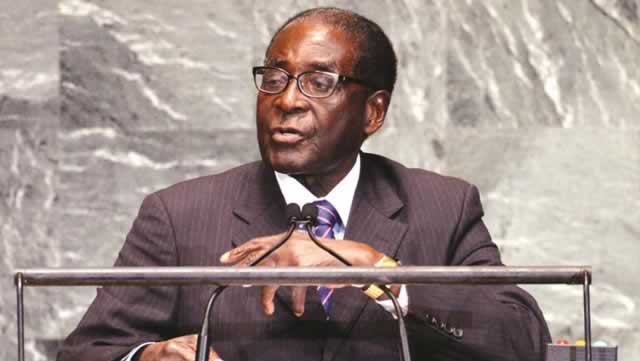
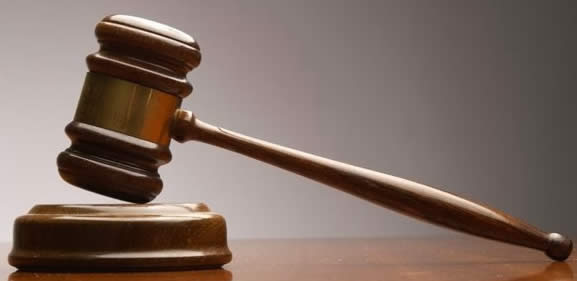
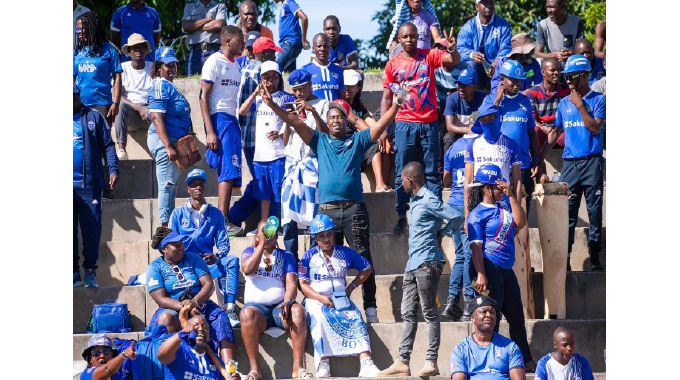
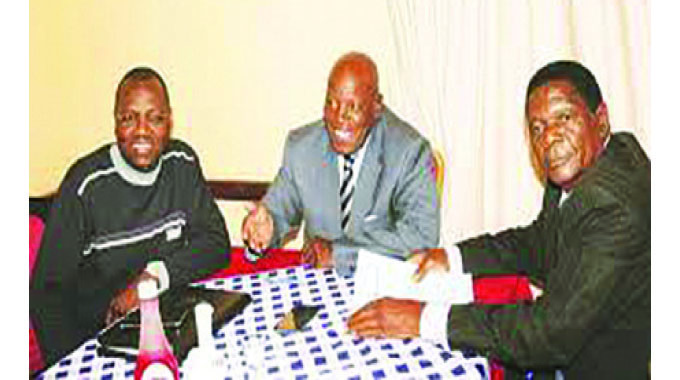
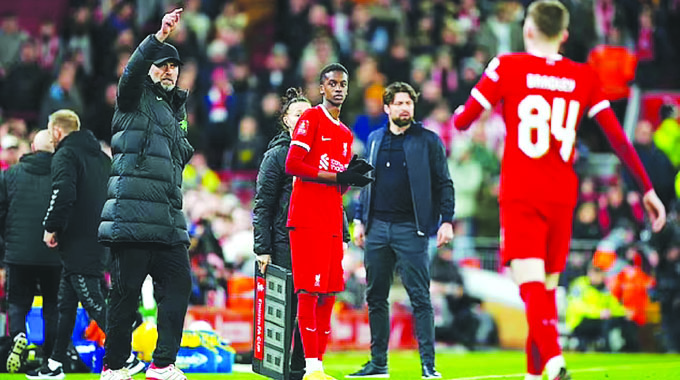

Comments